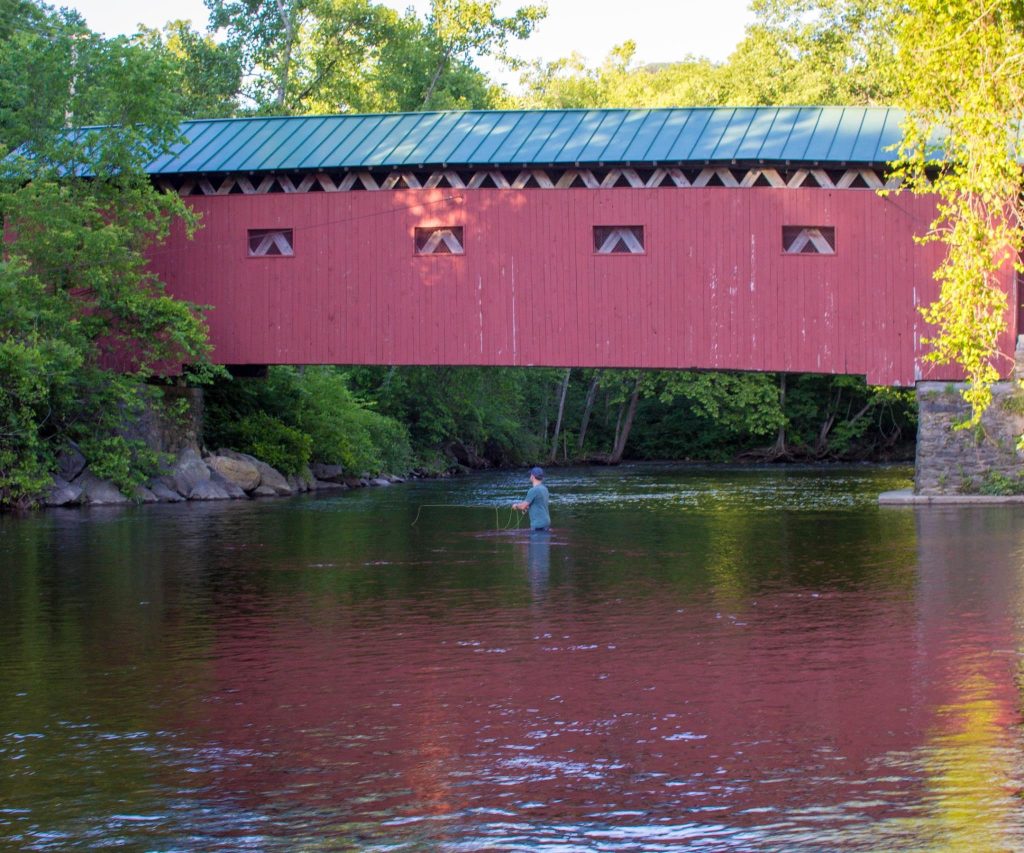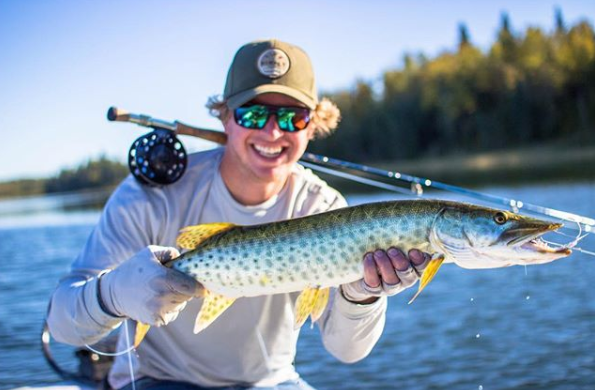Fly fishing is not easy but there are a few steps you can take to start fishing like a pro. We have all seen the photos on Instagram of the beautiful fish caught in a quintessential location seemingly with ease. I will let you in on a little secret – those people work for their fish just like you. There are certainly different levels of skill when it comes to being a fly fisherman, but don’t let those photos lead you to believe that you don’t have any skill. These tips will help put you on the path you want to be as an angler.
Fly Fishing Like a Pro
Fly Fishing Gear
Odds are that if you are reading this, you know the basic gear you need. Fly rods, reels, a fly box, waders, and a pack are generally starting points for a beginner. However, you can take your fly fishing to the next level with a couple extra pieces of gear.
- The right rod and line combination – At some point you should be able to pick up any rod and throw it with any corresponding line. However, perfecting your craft on a good line and rod combination can be key to furthering your success. Some lines simply do not cast well on some rods. Conducting a little research or talking to your local fly shop can ensure that you make the right investment for your casting style.
- Stream Thermometer – Stream thermometers can be invaluable because they can help indicate if fish will even reliably inhabit the habitat you are trying to fish. Unless you are fishing in the heart of winter I generally am not too concerned about water being too cold, but very often the water can be quite warm. Understanding the temperature at which your local stream or waterbody operates at different times of year can prove invaluable.
- Polarized Sunglasses – This pertains more to sight fishing and saltwater fishing but cannot be overlooked. When I started fly fishing as a kid I looked at sunglasses as primarily a means to protect my eyes from flies as I cast. While this one of their functions, having a solid polarized pair can increase your ability to spot fish and various habitat structures which will increase your production.
Do Your Research on Fly Fishing
You need to read forums and articles to learn more about the sport. I read various articles to 1. Learn new techniques and 2. Learn about a new types of water. For example, I never would have honed my skills as a euro nymph fisherman without diving into rabbit holes of videos and articles on the technique. The same goes for saltwater fishing, especially because most of us learn fly fishing on freshwater.
Some outlets may even offer courses which can prove invaluable. Take our Fish Streamers Like a Pro course for example.
Researching different aspects of the sport will increase your appreciation for it and increase your depth of knowledge. The more techniques and types of water you know then the more you can mix your application of fishing those various techniques.
Do Your Research on Fish
In addition to expanding your fly fishing breadth of knowledge, understanding your target species can prove to be just as valuable. So many of us “wing it” when we start out fly fishing but you can better understand what water to fish and how to fish it by understanding the fish themselves.
For example, one of my favorite fish to target are striped bass which can be found in estuaries, the open ocean, or on tidal flats. However, they occupy these habitats at different stages of their migration or even at different stages in contemporary weather and climate. When I first began pursuing stripers, I read about their life history and preferred habitat. I also watched several videos on their movement with the tides. This gave me a head start on the fish themselves and allowed to me to target specific areas based on the time of year, weather, and tides. The same concept can be applied to any game fish you want to pursue.
Take Notes
One of the best things you can do is take notes either during or after a fly fishing trip to begin leveling up to fishing like a pro. I always take notes on the time of day, the weather, and water parameters (flow rate, temperature, tides). When I do catch fish, I log how and where I caught them. By knowing the habitat in which a fish was caught in conjunction with the other factors I listed, you can start to understand fish behavior during different scenarios and have an easier time targeting fish on both water you know and water you don’t.
Practice
This one may go without saying but you need to practice. Even if you only have time to practice casting, you will spend less time on the water each trip re-honing your cast. However, this does not account for the fishing aspect of fly fishing. You need to hit the water in order to continue to improve. Even if only for a short period of time, the more exposure you have the more improvement you will see.
Conclusion
I hard starting out to go from zero to fly fishing like a pro, but easy to get good at it provided you are willing to do a little extra digging in your free time. However, fly fishing requires repetition, and you will need to hit the water to level up. The more you hit the water, the easier it will be to fall into a rhythm each time you fish. In turn, it will be easier for you to take quick fishing trips as time allows. We all want to be like those guys on Instagram showing off beautiful photos of fish seemingly every day. But remember, while these people are good anglers, they hit the water all the time. It is easy to let those photos discourage you, but remember that everyone has their good days and bad days. Do some research and fish consistently for a couple weeks and you will start to see your production explode.

